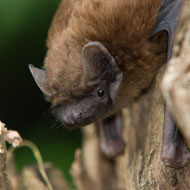Updated advice on bat bites

Infected bats may not show signs of illness, so all bats should be considered a potential risk.
Public Health England has published updated information for people who have been bitten by a bat in the UK or overseas.
Bat rabies, or bat lyssavirus, can be found in many countries, including the UK, and can be fatal in humans once symptoms appear.
Whilst the risk of catching rabies from a bat in the UK is very low, infected bats may not show signs of illness, so all bats should be considered a potential risk.
However, prompt treatment with a rabies vaccine after exposure is effective at preventing disease.
PHE says anyone who has been bitten or scratched by a bat should contact their doctor straight away. Bat bites are often felt and not seen and may not bleed or leave an obvious mark on the skin.
After contact with a bat, it is important to:
- wash the area of any bite or scratch with soap and water immediately
- contact a health professional promptly so that they can assess the exposure and arrange post-exposure treatment. Even if you have had rabies vaccine before, it is still important to seek medical advice.



 The Veterinary Medicines Directorate (VMD) is inviting applications from veterinary students to attend a one-week extramural studies (EMS) placement in July 2026.
The Veterinary Medicines Directorate (VMD) is inviting applications from veterinary students to attend a one-week extramural studies (EMS) placement in July 2026.